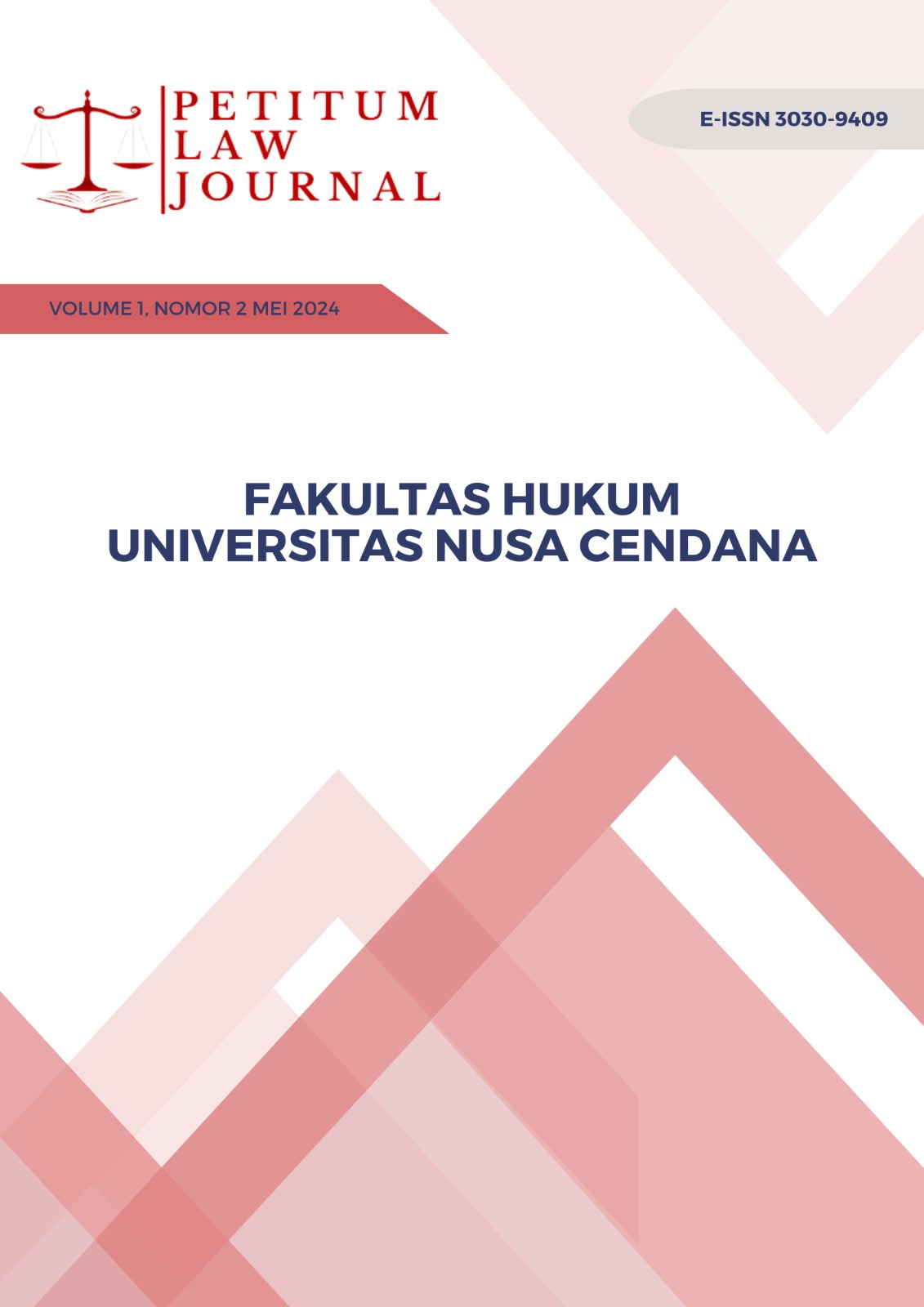PROBLEMATIKA NORMATIF PERLINDUNGAN HUKUM BAGI SAKSI PELAKU YANG BEKERJA SAMA (JUSTICE COLLABORATOR) DALAM HUKUM POSITIF DI INDONESIA
Main Article Content
Abstract
The application of justice collaborator in the Criminal Justice System in Indonesia is based on the Regulatory Provisions of Law Number 31 of 2014 concerning Amendments to Law Number 13 of 2006 regarding the Protection of Witnesses and Victims, Supreme Court Circular Number 4 of 2011 and Joint Regulation of the Minister of Law and Human Rights, Attorney General, Chief of Police, Chairman of the KPK and Chairman of LPSK. However, in its application as an instrument of law enforcement, there are still various problems in terms of the substance of the legislation used, the mechanism of its application, the authority of institutions in terms of protection, the pattern of application of justice collaborators which is full of disparities to the proportionality of law enforcement officials' views on justice collaborators. This research is a normative legal research, where normative research is research that examines legal problems that include research on legal principles, theories, legal systematics and application of law in the form of court decisions. The results of this study show that: (1) The regulation of justice collaborator in positive law in Indonesia has not been able to provide a scanty regulation so that the application of justice collaborator as an instrument of law enforcement in the criminal justice system in Indonesia has not been effective and efficient. This can be seen from the various problems that arise that cause difficulties in implementing justice collaborators because there is no solution to these problems in positive law in Indonesia. (2) Legal protection and appreciation to justice collaborators are forms of appreciation to justice collaborators for their contributions to the disclosure of serious and organized crimes. In addition, this protection and award is intended to ensure the safety of justice collaborators who are in vulnerable positions and as an effort to build a penal model with a protection and correctional perspective. In order to realize justice, certainty and legal expediency, the application of justice collaborator requires detailed arrangements related to the mechanism and system of its application, because if there is still uncertainty in the mechanism and system of its application, the protection and rewards mandated by law for justice collaborators become useless.
The application of Justice collaborator in the Criminal Justice System in Indonesia is based on the Regulatory Provisions of Law Number 31 of 2014 concerning Amendments to Law Number 13 of 2006 regarding the Protection of Witnesses and Victims, Supreme Court Circular Number 4 of 2011 and Joint Regulation of the Minister of Law and Human Rights, Attorney General, Chief of Police, Chairman of the KPK and Chairman of LPSK. However, in its application as an instrument of law enforcement, there are still various problems in terms of the substance of the legislation used, the mechanism of its application, the authority of institutions in terms of protection, the pattern of application of justice collaborators which is full of disparities to the proportionality of law enforcement officials' views on justice collaborators. The formulation of the problems in this study: (1) Has the regulation on Justice collaborator in positive law in Indonesia been able to answer the needs of law enforcement as well as protection and reward for justice collaborator? (2) Why do justice collaborators need to be given legal protection and rewards? This research is a normative legal research, where normative research is research that examines legal problems that include research on legal principles, theories, legal systematics and application of law in the form of court decisions. The results of this study show that: (1) The regulation of justice collaborator in positive law in Indonesia has not been able to provide a scanty regulation so that the application of justice collaborator as an instrument of law enforcement in the criminal justice system in Indonesia has not been effective and efficient. This can be seen from the various problems that arise that cause difficulties in implementing justice collaborators because there is no solution to these problems in positive law in Indonesia. (2) Legal protection and appreciation to justice collaborators are forms of appreciation to justice collaborators for their contributions to the disclosure of serious and organized crimes. In addition, this protection and award is intended to ensure the safety of justice collaborators who are in vulnerable positions and as an effort to build a penal model with a protection and correctional perspective. In order to realize justice, certainty and legal expediency, the application of justice collaborator requires detailed arrangements related to the mechanism and system of its application, because if there is still uncertainty in the mechanism and system of its application, the protection and rewards mandated by law for justice collaborators become useless.

